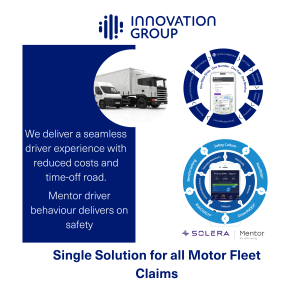Meet Robert McDonald. Robert is the general secretary for RCAR and the Director of Initiatives at the Insurance Australia Group (IAG). Robert’s experience in auto safety and insurance sees he and his team preparing and forecasting change within the automotive sector regularly.
It is important to ensure that the legal, financial and safety details of vehicles continues to match any technological advancements that come over time. With autonomous cars just years away from mainstream use, it is now more important than ever that manufacturers, fleet managers, insurers and everyday drivers understand both the benefits and limitations of this new technology.

Robert McDonald is the General Secretary for RCAR and the Director of Initiatives at the Insurance Australia Group (IAG)
Tell me about the history of IAG and your role within the company.
IAG started as part of the NRMA insurance back in the late 90s, and has gradually grown by acquiring other brands and merging with other companies to be the largest general insurer within Australia and New Zealand.
Currently, that includes the brands of NRMA, SGIO, SGIC, CGU and also RACV through a partnership with the motoring club in Victoria along with Westfarmers insurance and Coles.
Autonomous vehicles are gradually filtering their way into the market, as technology develops at a rapid pace. What effect do you expect that to have on the insurance sector?
It affects our business in lots of significant ways, both positive and negative. People will be changing the way they do business and there will be changes in car ownership and car usage which will mean that the way that we use and buy cars may not totally apply in the future.
What are your thoughts on Tesla’s role in paving the way forward for electric autonomous vehicles?
I think there is a bit of a misconception in the marketplace that the Tesla is already an autonomous car. I don’t think Tesla has helped the situation until recently by encouraging people to experiment with the highway driving mode.
I think it has been good that Tesla has now made an effort to inform and educate drivers that they are not to leave the front driving seat and that someone should always be watching what the car is doing at all times.
Given the claims and promises made by autonomous vehicles, it would seem only natural that this technology will eventually save hundreds, if not thousands of lives.
That’s the expectation, but we need to remember if you take out the poor drivers, the drink drivers, mobile phone users and repeat offenders who have already lost their license, what is left is quite a difficult market that autonomous cars will need to match.
When you take the outliers out, the average person has a crash only every 12-15 years. That is a reasonably tough target for a self-driving car to meet and I don’t think that’s going to happen overnight.
Aside from obvious issues such as cost and overall availability, why do you think there has been a tendency from the Australasian market to take up autonomous vehicles?
Much like electric cars, there is a general lack of incentives and tax refunds to encourage people to prioritise safety. Big car companies are more or less hedging their bets with these level 5 vehicles. Most of them are planning on continuing to produce cars with steering wheels, because most people still aren’t willing to buy a vehicle without a wheel on it.
There was a survey completed by the Australian Drivers Initiative that found well over 50% of drivers found they were very concerned about autonomous vehicles. Many of them had fears of financial and legal costs involved, and over half said that they would still like to have some control in the car that they drive.
When do you think fleet managers will start committing to autonomous vehicles, if ever?
I think certainly somewhere between 2020 and 2030 there should be the ability to buy a car that can do short trips on designated roads. Maybe there would be a pool vehicle that employees could share to get between meetings and the like.
In 2016 when the NTC ran workshops around the country, around 2030 was the generally agreed time when we would start seeing Level 4 and Level 5 cars in action. Between now and then I think we will see various subsets of that.
What are RCAR and IAG’s positions on autonomous vehicles and do you personally have any concerns for the future?
Naturally, RCAR is trying to make sure that the insurer’s voice is being heard in the way the systems are being developed. We’ve already heard that the criteria for data, is to determine fault and liability of autonomous cars. It is important to know exactly when the computer is driving and when the human is driving and we rely on advanced telematics to assist us with this.
These cars are going to be expensive, and the claims costs for parts are going to higher. But on the flipside, the future with autonomous cars should see fewer claims and repairs overall so it may or may not balance out.
The next 5 years is going to be quite exciting in the development of some of these systems and seeing exactly how things are going to turn out.











